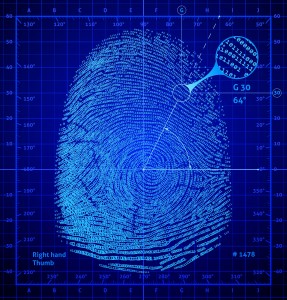More and more different solutions have been developed to use e-ID, from which we now present some examples here below and we promise that this review will be continued by us on the solutions implemented in other continents as well.
 Personal identification has high priority in a growing number of fields, whether they are related to passports, bankcards, mobile phones, office access control systems or elections. According to experts, biometric identification is much more secure, than the formerly known and used identification procedures. It may really be expected by the states to know if those people vote who are entitled to elections, and they also want to be aware who enters their state borders, and whom they provide social benefits. It is important for the banks to identify their clients, and the companies want to know who enter their buildings, for what purpose and which areas will be visited by them.
Personal identification has high priority in a growing number of fields, whether they are related to passports, bankcards, mobile phones, office access control systems or elections. According to experts, biometric identification is much more secure, than the formerly known and used identification procedures. It may really be expected by the states to know if those people vote who are entitled to elections, and they also want to be aware who enters their state borders, and whom they provide social benefits. It is important for the banks to identify their clients, and the companies want to know who enter their buildings, for what purpose and which areas will be visited by them.
In a state of Nigeria, the card called „Kaadi Igbe Ayo” was introduced in a card format equipped with chip and 93 applications, among pregnant women, as a first step. Through the introduction of this card it became possible to store the results of medical examinations implemented during prenatal care on the card of pregnant women, therefore, their data can be queried at any hospital, even in emergency situations. This card is intended to be available to all inhabitants of the state, and in fact, they want to raise this project to national level. Up to now 400,000 pieces of these cards have been issued to the inhabitants of the state. This chip card provides the access to use all state and social services, from maternity program, through micro-credit system, to free education. This chip card includes the most important personal and socio-economic data of the card owner, and also the welfare services and applications of the state.
Meanwhile, the Economic Community of West African States (ECOWAS) works to introduce a card format personal ID document provided with biometric data next January, and the use of this card will enable people to travel freely, without passport between the member states within the region.
The Malaysian „MyKad” system is a well-functioning program for 14 years. In fact, MyKad which was introduced in autumn of 2001 is a personal ID card that is compulsory for all Malaysian inhabitants from the age of 12 and therefore, Malaysia became the first country of the world, where a chip card included not only the citizens’ photo, but also the biometric elements of their fingerprint. In addition that this document is suitable for personal identification, it is also a driving license, electronic wallet, and an identification card that can be used for numerous government applications and services at the same time, but it can also be used in public transport or to enforce shopping discounts during shopping.
We are identified from the moment of our birth, though an armband is enough for us as babies. In the future, however, it may be possible that not only our name will be written on it, but still at the hospital our complete personal data file will be loaded on us, from biometric identifiers to tax number all information that identifies us on different data carriers during our whole life.
